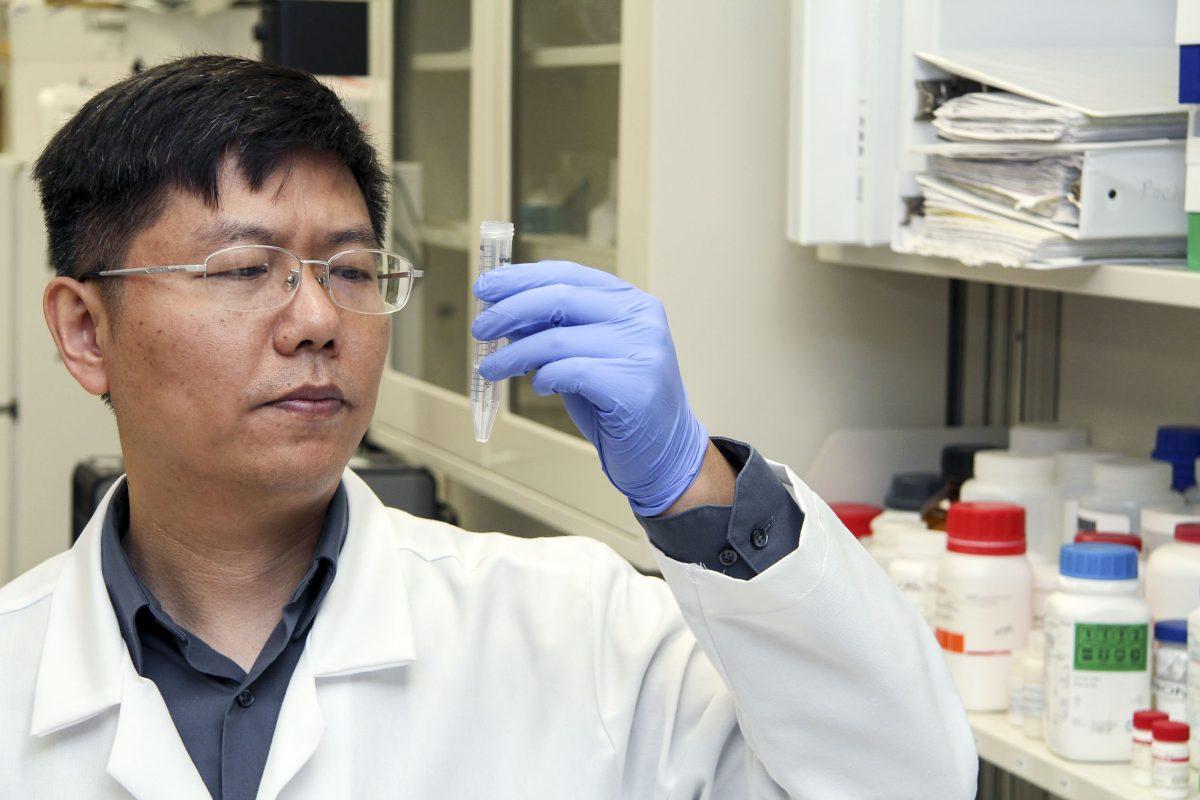Sam Scott, Battalion news reporter, sits down with Lin Zhu, assistant professor of pharmaceutical sciences, to discuss his work with developing nanotechnology to improve cancer treatments.
THE BATTALION: You and your team are researching how to minimize the side effects of cancer treatments such as chemotherapy. How could this be possible?
ZHU: Currently, the chemotherapy is one of the most effective options for managing various types of cancer. Chemotherapy drugs are usually toxic chemicals and designed to kill cancer cells. Unfortunately, they are not “smart” enough to recognize their target — the cancer cells. The healthy cells are unavoidably damaged by these anti-cancer drugs. One of our research goals is to design the “smart” drug delivery carriers to help these toxic drugs to find and kill only the cancer cells without or with less toxicity to other types of cells in the body.
THE BATTALION: How can you design chemotherapy to only go after the cancerous cells?
ZHU: We have known that cancerous cells [and] tissues had certain unique characteristics compared to normal cells [and] tissues, such as the up-regulated proteins, acidic microenvironment, low oxygen concentration,
et cetera. These characteristics can be used as the local stimuli for the purposes of drug delivery and therapy. The matrix metalloproteinase 2, MMP2, a major enzyme in the cancer tissue, is one of them. In my lab, we have designed various nano-sized drug carriers which could respond to the tumoral MMP2 and specifically deliver toxic drugs to cancer cells. By this way, the drugs will stay with the nanocarriers without drug “leakage,” and then be released from the nanocarriers once entering the cancer cells.
THE BATTALION: What progress has your team made with this targeted cancer treatment?
Zhu: So far, we have successfully prepared several MMP2-sensitive nanomaterials which could be used to construct cancer-specific drug delivery systems. They have been preliminarily tested in various human cancer cell lines and tumor-bearing mice. In these models, they showed better anticancer effects and less toxicity to normal tissues, compared to the chemotherapy drug alone. However, more studies are needed before they can go to clinical trial.
THE BATTALION: What adverse side effects could your research prevent patients from experiencing?
Zhu: The major cause of the side effects of the chemotherapy drugs is their toxicity to the healthy cells [and] tissues. The drug-related toxicity [and] side effects, which are very common in the patients receiving thermotherapy, include the fatigue, hair loss, blood disorders, nausea and vomiting, et cetera. These side effects can be most likely minimized by our strategies.
THE BATTALION: Are there any possible drawbacks to this new type of treatment?
Zhu: I have to say that nothing is perfect, including our anti-cancer strategy. However, to the best of our knowledge, our strategy is superior to the currently used anticancer strategies in terms of the cancer specificity, anti-cancer efficacy and side effects. Since the studies in my lab are preclinical studies, a lot of tests have to be done to confirm its efficacy as well as assess its possible side effects before it can really benefit cancer patients.
THE BATTALION: What are the implications for your research on the fields of pharmacy and medicine?
Zhu: Our research is driven by the need to improve the formulations and drug delivery systems of current chemotherapy drugs and to develop a strategy that can be a stepping stone towards attaining the ultimate goal of cancer-specific drug delivery and therapy. I hope that our work could be a paradigm of both the anti-cancer drug development and the cancer-specific chemotherapy.
Researcher works toward ‘smart’ chemotherapy
March 30, 2015
Photo by Provided
Dr. Zhu conducts research to find a new way for chemotherapy to attack only cancer cells.
0
Donate to The Battalion
$0
$5000
Contributed
Our Goal
Your donation will support the student journalists of Texas A&M University - College Station. Your contribution will allow us to purchase equipment and cover our annual website hosting costs, in addition to paying freelance staffers for their work, travel costs for coverage and more!
More to Discover









